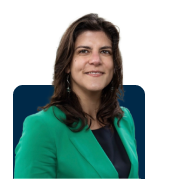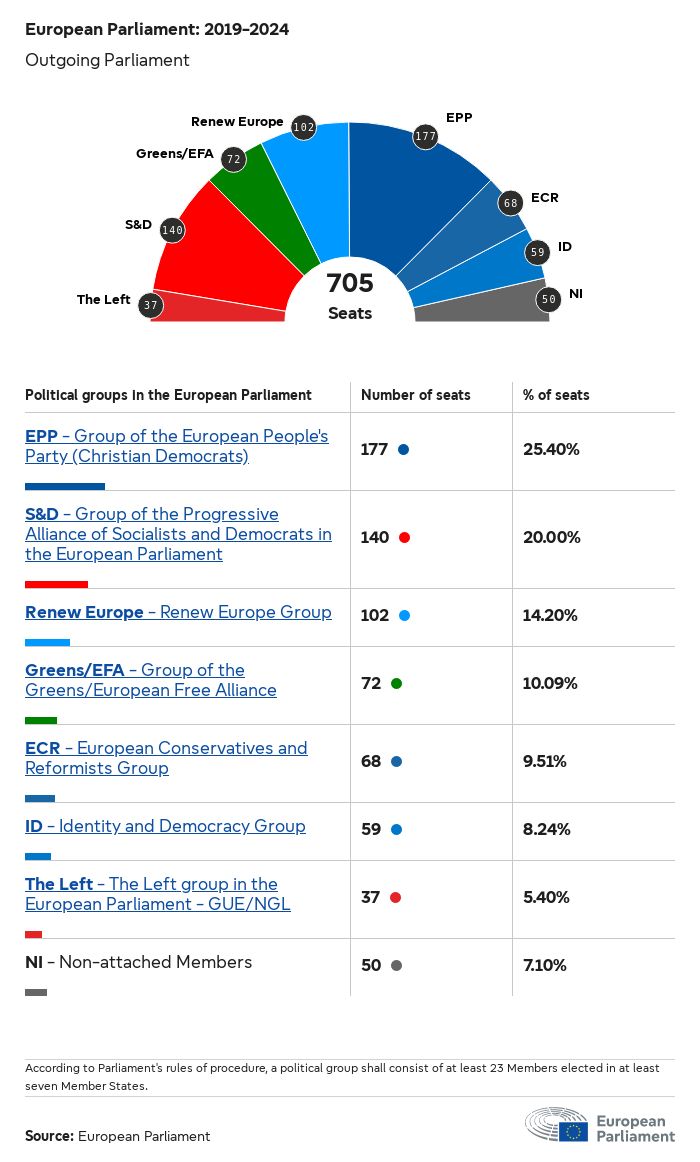Dutch
MEP candidates
We interviewed Brigitte van den Berg
and Bart Millenaar and this is their story
"Europe ensures our safety"
As an alderman, Brigitte van den Berg (35) deals a lot with Tata Steel. She is a candidate for the European Parliament for D66 (Renew Europe). “The craft of local politics is needed in Brussels.”

Brigitte van
den Berg
Alderman in Beverwijk, candidate for RENEW Europe
You have been an alderman in Beverwijk for six years now. Why do you want to go to the European Parliament?
“As the alderman with economics, sustainability and energy transition in my portfolio, a lot of my time is spent on dealing with Tata Steel. What we need on a local level is a clear norm for air quality, and a clear strategy for green industry in politics. Those things are determined in Brussels, so that is where I have to be. In addition, I have noticed that knowledge of local communities is sometimes missing in Brussels. When policy is made, it stays pretty abstract. Dealing with local communities is a strength of mine, which I can bring to the European Parliament.”
Your campaign slogan is: Europe is close. This is very different to how a lot of people experience the European Union. Do you agree?
“For sure. Everything unknown seems far away. I want people to experience better that Europe is there for them. To give an example: students in higher education (HBO and university) get a diploma that is valid all over Europe. More than a quarter of them also go on European exchange during their studies on the Erasmus-scholarship. This makes you grow up as a European. Practically schooled students (MBO) don’t get the same recognition of their diploma’s or study credits. That makes it harder to go on an exchange. It is therefore very understandable to be less familiar with Europe later in life. People often react by saying ‘Really?!’ when I tell them that the practical diplomas are not valid in other EU-countries. That this is not on the agenda in Brussels shows a concerning gap: there is not enough representation of practically educated people in politics.”

People often react by saying ‘Really?!’ when I tell them that the practical diplomas are not valid in other EU-countries.
How will your experience dealing with the Tata Steel dossier help you in Europe?
“What we saw in our region is a lack of enforcement. We put to little pressure on a big company like Tata to develop a strategy for the energy transition. Politicians did not listen well enough to experiences and concerns of people in the community around Tata Steel. These signals have to lead to actions much sooner. That is the craft of local politics. And it is needed in Brussels.”
What do you mean by that?
“The Green Deal has shown that as Europe we can unite around green policies. Now it seems that the EU is surprised by all of the resistance. As a local politician, I am used to talk to people who are opposed to a policy I want to implement. And I believe that you can give farmers real perspective in Europe. Now the situation has escalated.”
It does pose a challenge to talk to everyone opposed to a policy on the European scale.
“The European agriculture policy is based on the idea of ‘Never hungry again’. This is very important of course. But now, we need to also use it to achieve our climate goals. If we don’t achieve that, humanity is going to have a worse time of it. I think we as politicians need to acknowledge this switch should have been made earlier. We’ve put ourselves in a difficult situation. I think it is important to acknowledge we have gone too far in the industrialization of agriculture.”
What should the conversation be about leading up to the elections?
“We have to go back to basics: Europe ensures our safety. So we should be talking about a common defense. Next to that we should make sure we have a green energy- and industry strategy which gives people perspective: show everyone that you can make money in a green economy.”
When will five years in the EU have been a success for you?
“When the European Union is just as safe then as it is now, when we have a strategy for green industrial policy and I really want to address the issue of practical diploma’s. We need European acknowledgment and every person should have access to a European experience before they are twenty years old.”
"We should give farmers the tools they need to become sustainable”
From Jan Huitema’s assistant to potential member of the European Parliament: Bart Millenaar (27) is candidate number seven on the list of the VVD (RENEW Europe). What are his ambitions? ‘As a farmer’s son, I want to bridge the gap between practice and policy.’

Bart Millenaar
Assistant of Jan Huitema (MEP), candidate for RENEW Europe
Bart Millenaar is a newcomer on the candidates list, but not to the European Parliament. After completing his studies at the higher agricultural school, he started working as an intern at the office of Jan Huitema, a current member of Parliament (RENEW Europe). With his ambition to bridge the gap between European policies and local farming life, he eventually became his assistant. What would he like to achieve as member of Parliament?
From the farm to the European Parliament: what motivated you to make this switch?
“I grew up on my parents’ dairy farm in Dussen, a small village in the south of the Netherlands. It was not the typical dairy farm you might imagine. When my dad grew older, we expanded the farm’s focus from only dairy to cows and agricultural nature and landscape management. The number of cows decreased, but its extensiveness grew. A big portion of our land is still dedicated to field margins for meadow birds. If you visit our property, you will find bird viewing huts around the area where you can observe the wildlife. To help other farmers implement biodiversity measures, we established an advisory branch. By offering tailored advice, we explained to farmers what European subsidies would be available if they incorporate biodiversity in their work. With the ambition to take over the farm one day, I went to the higher agricultural school. But in the farmyard, I recognized the mismatch between European policies and local needs.”
You mention you started working at the European Parliament because of your ambition to make European policy fit for local needs. Why did you not start a career at the European Commission?
“Members of Parliament do not propose new laws, like the European Commission does. However, they do have the power to amend, remove, or add content in proposals to the extent that you could frame it as writing new laws. And believe me: with the right man or woman in the right position, you can achieve a lot. To give you an example: there were 3000 amendments submitted for the proposal of the sustainable use of pesticides regulation. As a rapporteur of this file, you have the authority to revise a proposal completely. You bring things to attention that are not heard in the large bureaucratic apparatus. Our goal is to find and fix the blind spots.”

With the right man or woman in the right position, you can achieve a lot.
What lessons should the European Parliament learn from the last five years?
“The Green Deal does not only have to affect farmers in a negative way, but there should be more focus on enabling tools and innovation to make greening happen. I always describe it as a package, an overall strategy, with pros and cons. On the one hand, you have the sour stuff, the implications that weigh on the industry and the farmers’ wallet. On the other hand, you have the sweet stuff, initiatives that promote innovation and competitiveness and help farmers to become resilient. While the climate and industry package of the Green Deal had both sweet and sour aspects, the agriculture package was almost entirely sour, with huge additional burdens for farmers. The support for the Green Deal slowly waned, with the result that the European Commission’s proposals no longer passed the European Parliament. Before adopting measures, we should have provided farmers with tools to prepare them to adapt to the measures. The sweet and the sour stuff have to go hand in hand.”
The polls suggest that we will have a (very) right-wing Parliament. What will this mean for the future?
“The future really depends on the outcome of the elections. It really depends on the votes of the people. With a very conservative Parliament, legislative proposals that focus on biodiversity and sustainability are less likely to get adopted. And if the European Union really wants it: they can even remove legislation that has already been adopted. That is how a democracy works. The European Union is built upon a democracy but can also be broken down by a democracy. Some European officials now think of translating the Green Deal to a farmers’ deal. What I do not hope, is a farmers’ deal results in completely taking away all environmental ambitions. This means that we also get rid of the sweet stuff, the tools that will help farmers.”
If you get elected, what would you do differently?
“I have been in meetings with European officials, and some of them have never even visited a farm. As a farmer’s son, I want to bridge the gap between practice and policy. European laws stick around for decades. If I get elected, I would like to develop laws that can change as needed over time and in different places. Next to that, I would like to create an Innovation Deal that replaces the Green Deal or the potential farmers’ deal. We should give farmers the tools they need to become sustainable.”

I have been in meetings with European officials, and some of them have never even visited a farm. As a farmer’s son, I want to bridge the gap between practice and policy.
The current EU Parliament
The image below shows how the 705 seats of the current EU Parliament are divided. Interested in more? Take a look the website of the elections.
